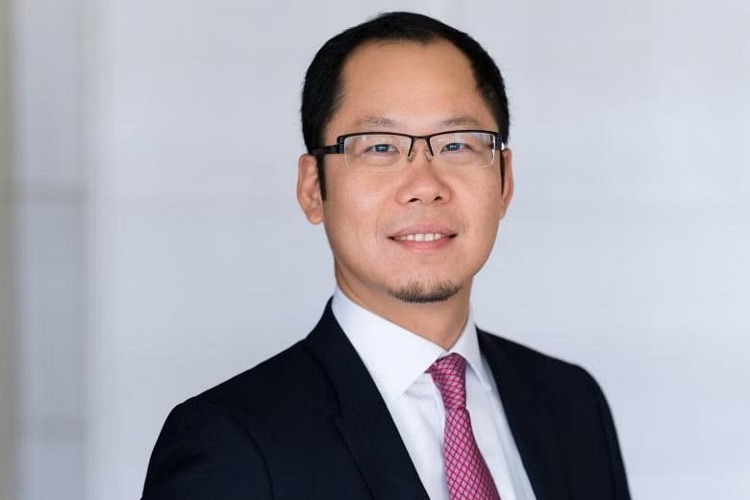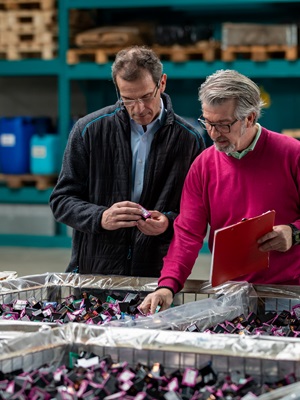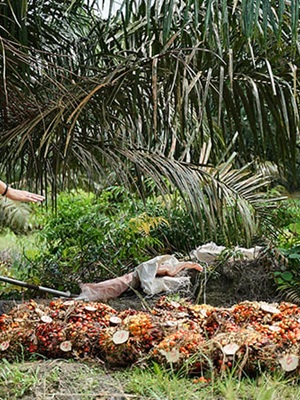It is hard to deny the urgency of climate crisis as we are reminded of it every day. From the news stories on the impact of rising sea levels and temperatures and biodiversity loss, to realisations of increasing costs of fuel and groceries at the petrol station or supermarket. Or even when we walk out the door and complain about the unbearable heat. The world is literally on fire, yet it seems that we are not quite doing enough to stop it.
In the most recent Intergovernmental Panel on Climate Change (IPCC) report released in April, United Nations Secretary General António Guterres gave a stark assessment of global progress towards tackling climate change. "This report of the IPCC is a litany of broken climate promises. It is a file of shame, cataloguing the empty pledges that put us firmly on track towards an unliveable world", he said.
Here in South-east Asia, climate change is a crucial issue we must tackle. The region remains exceptionally vulnerable to climate change, from environmental degradation, erratic weather and natural catastrophes to rising sea levels and temperatures and resultant forest fires that destroy homes and habitats. These climate events affect South-east Asia's key sectors such as agriculture, fishing and tourism, with the region facing a risk of losing more than 35 per cent of its gross domestic product by 2050.
The whole ecosystem must work towards a just transition.
The world must reduce greenhouse gas emissions to net zero by 2050, a key benchmark in limiting global damage caused by climate change. To do so it will require a transformation of the global economy from one that has been powered by fossil fuels to one that no longer depends on them.
However, South-east Asia has been reliant on fossil fuels to drive massive economic expansion, urbanisation and industrialisation in the past two decades. An unbalanced shift towards decarbonisation in the region can result in trade-offs with real-life consequences.
A just transition to net zero for our region means ensuring continued operations for economic development in tandem with replacing high-emitting technologies with low-emitting or carbon-free alternatives. Our priority must be to deliver environmental commitments that incorporate energy security as well as economic and social equity and quality.
 Our priority must be to deliver environmental commitments that incorporate energy security as well as economic and social equity and quality.
Our priority must be to deliver environmental commitments that incorporate energy security as well as economic and social equity and quality.
There needs to be leadership, collaboration and action from all stakeholders - governments and regulators, consumers, investors, financial institutions and the real economy - to ensure a sustainable future.
Singapore to lead the way in financing South-east Asia's net zero transition
The exponential growth of the region's green financial ecosystem has shown us that the transition to a net zero economy is a priority for key stakeholders here. This is not just about managing environmental risk: decarbonisation is a generation-defining business opportunity.
Singapore has an opportunity to lead this just transformation through connecting people and businesses within Asean. We have seen this leadership take shape in the financial ecosystem.
Singapore is home to the Asia-Pacific arm of the Glasgow Financial Alliance for Net Zero (GFANZ), a global coalition of leading financial institutions that aims to help bridge global investors' net zero concerns with the actual needs of South-east Asia. One of GFANZ's key focus is to shape regional net zero sectoral pathways that will be recognised by investors adhering to established standards and taxonomies.
Such pathways provide a useful benchmark for financial institutions to shape their investments and financial services to be in line with the net zero transition in particular sectors, which can create fundamental shifts on an industry scale. This will help enable more private capital to be channelled from developed markets to drive sustainable development of the region and facilitate a just transition to net zero.
In particular, transition financing will be crucial to support the transition of high-carbon and hard-to-abate sectors, such as oil and gas, including the decommissioning of existing assets without leaving their operations stranded in the process.
Further, public-private partnerships will play a critical role in fostering collaboration and managing private-sector risks and public-sector costs. According to the Asian Development Bank's (ADB) estimates, Asean governments will need the private sector to fund 40 per cent of infrastructure investments. The ADB's Asean Catalytic Green Finance Facility Fund, which targets to attract US$3 of commercial capital per dollar of public capital spend, is one such example.
A report by Microsoft and Temasek estimated that more than half of the US$2 trillion investment needs in the region will likely be in sectors such as renewable energy, transportation and the built environment. With investors increasingly seeking high-quality assets and projects that meet international sustainability standards, making South-east Asia's green infrastructure projects bankable will be critical.
Collective efforts critical to building our net zero future in Asean
This green industrial revolution won't happen through the efforts of one sector, one company or one individual. The end goal of transitioning to a net zero economy is to ensure that people can lead better lives while securing the sustainability of their future. If a zero carbon economy can only be possible at the expense of the livelihoods of our local communities, it would hardly be counted as a victory for the path towards net zero.
As a bank, it is not just about bringing our financing portfolio to net zero. Even if we do so but the real economy does not achieve net zero, then collectively as a global community we have failed. To achieve real impact, we need to drive sustainability that is inclusive and progressive. By making a collective effort to support our clients through advisory and provide access to sustainable financing and green solutions, we will help companies in the region with their transition to net zero.
As the saying goes, if you want to go fast, go alone; if you want to go far, go together. Our success depends on how we work together to build a sustainable future for the people and businesses within Asean, and those connecting with the region.
This article was first published on Business Times. 03 November, 2022.
Posted 28/02/2024
Our priority must be to deliver environmental commitments that incorporate energy security as well as economic and social equity and quality.

















